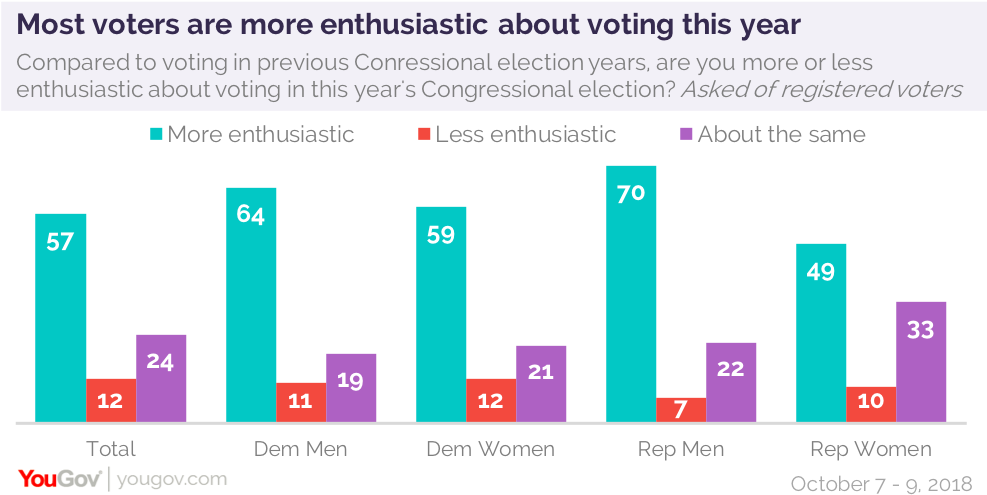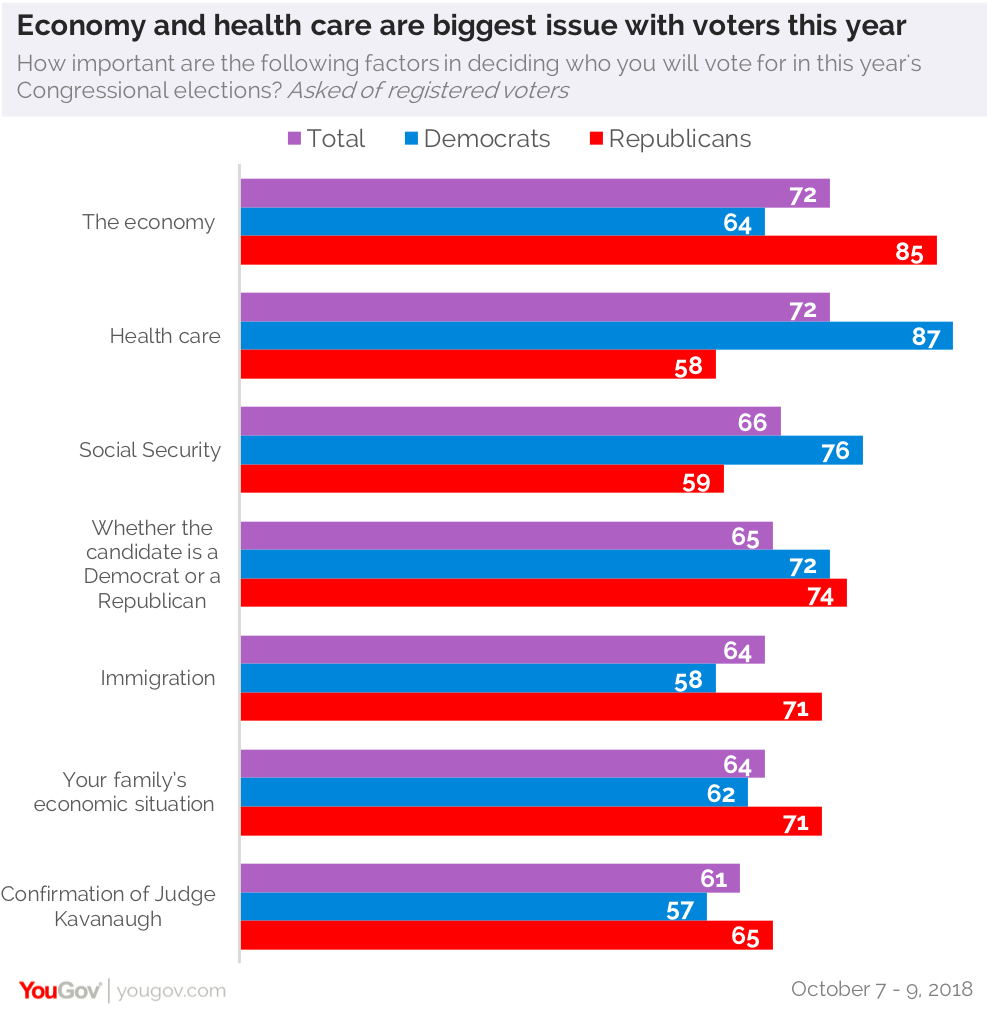The economy and health care are more important issues for registered voters than Kavanaugh's confirmation
With midterm elections less than a month away, is there any way to tell what the impact of Brett Kavanaugh’s appointment, contentious hearings, and confirmation could be on the Senators who voted for or against him, or on voter enthusiasm and turnout? For some voters this may be the defining issue. But the latest Economist/YouGov Poll suggests that other concerns may be even more dominant, and with just about four weeks to go, it may still be too early to make sure predictions.
Last week saw a jump in enthusiasm among Republican men. That jump is enthusiasm remains in this week’s poll. While Republican and Democratic voters overall are equally likely to say they are more enthusiastic to cast a vote this year than they usually are (about six in ten in each party), gender plays a distinctive role in enthusiasm between the parties. Republican men continue to be more enthusiastic than Democratic men to cast their ballot; the opposite is the case between Democratic and Republican women.

But how important is the Kavanaugh vote in that? Four in ten nationally say they don’t even know how their Senators voted on the Kavanaugh appointment. Registered voters are better informed, but more than a quarter of them also say they don’t know how their Senators voted.
Six in ten say the Kavanaugh nomination will be “very important” in deciding how they will vote in this year’s Congressional elections. 17% say it won’t be important at all, and that percentage is even higher for African-Americans and ideological moderates. Many other things are clearly more important: for Republicans, a list that includes the economy and its effect on their family. (Republicans are especially likely to say they are benefiting from an improved economy: 42% say their family is better off financially than they were a year ago, nearly double the percentage of independents who say this, and more than three times the percentage of Democrats.) Republicans also cite immigration.
Far more Democrats say they are focused on health care and Social Security than say the Kavanaugh confirmation will be very important, and for nearly three-quarters of partisans, the party of the Congressional candidate matters a lot.

There are some major differences. 73% of Republican men cite the Kavanaugh confirmation vote as very important – the highest of any major group. Independent women are more likely to say they than either Republican or Democratic women.
When asked the most important of the factors that will affect their vote, more registered voters – Democrats and Republicans – cite the political party of the candidate, than choose any of the other issues. Even 12% of independents say it’s party that will matter most, just about the same percentage who name health care, immigration, or the economy.
See full toplines and tables results
Image: Getty







